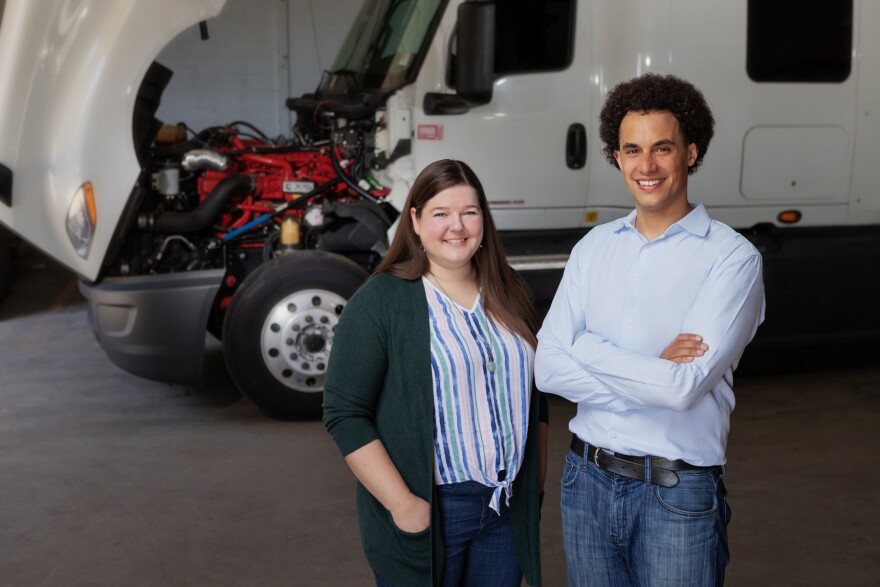ClearFlame CEO BJ Johnson and his co-founder Julie Blumreiter, started their research while attending Stanford University, on how to run heavy duty engines on low carbon fuels. Now based in Geneva, Illinois, they're preparing their first test outside of the lab.
"We did our initial commercial engine demonstration on a Cummins X-15 platform, an on-road semi truck engine. The partnership with Deere and the investment from Deere is going to allow us to move that over to one of their engine platforms, for a range of applications like agriculture and construction, do an engine demo with them, and then towards the end of next year ideally translate that into an actual field demo of the technology on a piece of equipment."
So the next step is for Deere to supply an engine, used in a range of its equipment, that ClearFlame will set up in its lab.

"You think of us as a parts kit that integrates into the engine either as a re-manufacturer or a new product, changes only about 10 or 15 per cent of the parts of the engine. The largest change is just making the fuel injection system compatible with a different fuel, like ethanol, and the rest of it is optimizing the engine to run at a higher temperature. Basically if you get a diesel engine to run a little bit hotter, then you're freed to use a whole wider range of fuels."
Johnson says that can have a big impact on emissions from large trucks and heavy equipment. Using corn ethanol now can reduce CO-2 emissions compared to diesel, by 45 to 50 per cent, with even bigger reductions possible in the future.
"I think one of the things ClearFlame is looking to educate the world on is that the word burning doesn't always have to be bad - it depends on what you're burning. If you're burning a fossil fuel then yes that is absolutely bad. But we've got liquid fuels today that are 50 % cleaner than that because they come from renewable sources and the Renewable Fuels Association has a goal to get to carbon-neutral ethanol by 2035."
He also thinks as more large engines are converted to burning ethanol, that reduces the emissions from producing ethanol, thanks to cleaner-burning tractors, combines, and trucks.
"Now I would definitely double down on the need for a range of solutions and I wouldn't want anyone to take anything I've said today to be 'see that's why we shouldn't be investing in electric vehicles or in hydrogen.' The diesel problem is so broad and so diverse, frankly it's naive to expect we're going to displace it with one silver bullet, panacea solution. And so at ClearFlame we believe ourselves to be an important part of the solution but we are certainly not the only part of the solution, and we need everyone to be embracing that."
Johnson also says this research can help boost the rural economy. Today, the US is producing about 17 billion gallons of ethanol each year, and every one per cent of trucks converted to burning just ethanol can result in the need to produce another billion gallons of ethanol.
Once they start working on the Deere engine in the lab, it could be ready for a field test by late next year.
Copyright 2021 WVIK, Quad Cities NPR. To see more, visit WVIK, Quad Cities NPR. 9(MDAxODM0NzY4MDEyMTY4NTkyNzMzZTEyMA004))







